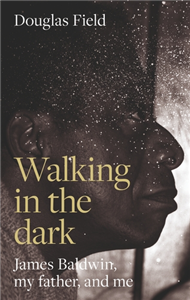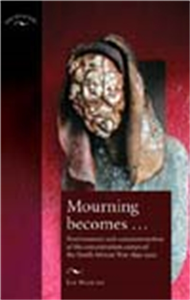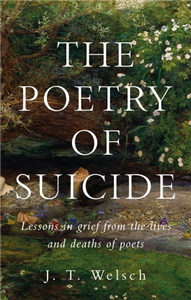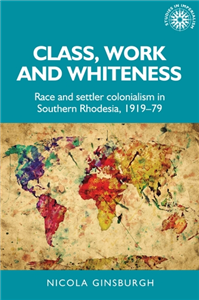Your Search Results
-
Griots Lounge Publishing Canada
Griots Lounge and its imprints offers traditional publishing and sundry services to creative talents across Africa, as well as children friendly literature.
View Rights Portal
-
Promoted Content
-
Promoted ContentHumanities & Social SciencesDecember 2023
Transitional justice in process
Plans and politics in Tunisia
by Mariam Salehi
After the fall of the Ben Ali regime in 2011, Tunisia swiftly began dealing with its authoritarian past and initiated a comprehensive transitional justice process, with the Truth and Dignity Commission as its central institution. However, instead of bringing about peace and justice, transitional justice soon became an arena of contention. Through a process lens, the book explores why and how the process evolved, and explains how it relates to the country's political transition. Based on extensive field research in Tunisia and the US, and interviews with a broad range of international stakeholders and decision-makers, this is the first book to comprehensively study the Tunisian transitional justice process. It provides an in-depth analysis of a crucial period, examining the role of justice professionals in different stages, as well as the alliances and frictions between different actor groups that cut across the often-assumed local-international divide.
-
 Trusted Partner
Humanities & Social SciencesFebruary 2022
Trusted Partner
Humanities & Social SciencesFebruary 2022Transitional justice in process
by Mariam Salehi, Simon Mabon
-
 Trusted Partner
Trusted Partner
-
 Trusted Partner
The ArtsJanuary 2019
Trusted Partner
The ArtsJanuary 2019From Perversion to Purity
The stardom of Catherine Deneuve
by Lisa Downing, Sue Harris
Catherine Deneuve is indisputably one of the world's most celebrated actresses, both in her native France and throughout the world. Her career has spanned five decades during which she has worked with the most significant of French auteurs, as well as forging partnerships with international directors such as Bunuel and Polanski. The Deneuve star persona has attained such iconic status that it can now symbolise the very essence of French womanhood and civic identity. In this wide-ranging and authoritative collection of essays by a selection of international film academics and writers, the Deneuve persona is scrutinised and illuminated. Beyond the glamorous iconographic status of Yves Saint Laurent's muse, and the epitome of sexual inviolability, Deneuve's status as actress is foregrounded. The book will be essential reading for students and lecturers in star studies.
-
 Trusted Partner
Trusted Partner
-
 Trusted Partner
Trusted Partner
-
 Trusted Partner
Biography & True StoriesNovember 2024
Trusted Partner
Biography & True StoriesNovember 2024Walking in the dark
James Baldwin, my father and I
by Douglas Field
A moving exploration of the life and work of the celebrated American writer, blending biography and memoir with literary criticism. Since James Baldwin's death in 1987, his writing - including The Fire Next Time, one of the manifestoes of the Civil Rights Movement, and Giovanni's Room, a pioneering work of gay fiction - has only grown in relevance. Douglas Field was introduced to Baldwin's essays and novels by his father, who witnessed the writer's debate with William F. Buckley at Cambridge University in 1965. In Walking in the dark, he embarks on a journey to unravel his life-long fascination and to understand why Baldwin continues to enthral us decades after his death. Tracing Baldwin's footsteps in France, the US and Switzerland, and digging into archives, Field paints an intimate portrait of the writer's life and influence. At the same time, he offers a poignant account of coming to terms with his father's Alzheimer's disease. Interweaving Baldwin's writings on family, illness, memory and place, Walking in the dark is an eloquent testament to the enduring power of great literature to illuminate our paths.
-
 Trusted Partner
The ArtsJune 2006
Trusted Partner
The ArtsJune 2006Mourning becomes...
Post/memory and commemoration of the concentration camps of the South African War 1899–1902
by Elizabeth Stanley, Bertrand Taithe, Roger Cooter, Carolyn Steedman
This fascinating work challenges many of the accepted facts about the concentration camps run by the British during the South African War. The author demonstrates that much of what we have traditionally understood about these camps originates the testimony which was solicited, selected and published by key women activists within Boer proto-nationalist circles. Using detailed archival evidence, she shows that much of the history of the camps results from a deliberate imposition of 'post/memory' - a process by which what was 'remembered' was shaped and reshaped to support the development of a racialised nationalist framework. Many of the camps' occupants died from successive epidemics of measles, typhoid, enteritis and pneumonia rather than deliberate ill-treatment, yet the book shows how mourning for those who died was overridden by state commemorative activities concerned with promoting pan-Boer nationalist aspirations. The innovative and groundbreaking approach of the author invites the reader to step into and explore with her the commemorative sites passed by nationalist land acts, which still powerfully mark the South African landscape. ;
-
 Trusted Partner
Business, Economics & LawJuly 2018
Trusted Partner
Business, Economics & LawJuly 2018Market relations and the competitive process
by Stan Metcalfe, Stan Metcalfe, Alan Warde, Mark Harvey
-
 Trusted Partner
The ArtsJanuary 2019
Trusted Partner
The ArtsJanuary 2019Bertrand Blier
by Sue Harris
The most complete study of Blier's work to date, Harris traces the director's career from the early 1960s until the present. Outlines the forms, themes and style which dominate in Blier's work, and challenges the many labels that have been used to describe both the corpus of films and the man himself. Provides an original and controversial discussion of Blier's alleged 'misogyny', and invites the reader to understand the scatological and corporeal aspects of Blier's filmmaking in terms of long-established traditions of popular dramatic culture. Brings to light the comic mechanisms underpinning Blier's films and identifies strategies which navigate through one of the most entertaining and disconcerting bodies of work of recent years. The first book on Blier published in English.
-
 Trusted Partner
Literature & Literary StudiesApril 2026
Trusted Partner
Literature & Literary StudiesApril 2026The poetry of suicide
Lessons in grief from the lives and deaths of poets
by J. T. Welsch
A profound exploration of the connection between poetry and suicide. 'Suicides have a special language,' Anne Sexton wrote in her 1964 poem 'Wanting to Die'. But is it a language we can learn to read? In The poetry of suicide, J. T. Welsch interweaves stories of poets who took their own lives with the long history of suicide in his own family, searching for a new way of understanding these difficult deaths. Beginning with Hamlet's 'To be or not to be?', he delves into the work of Dante, Sylvia Plath, Vladimir Mayakovsky and others, asking what it can teach us about suicide's messy reality. Suicide is more like poetry than we realise, Welsch argues. Both are filled with ambiguities, contradictions and unknowable intentions. Both demand and resist interpretation. Recovering the personal dimension often lost in our medicalised public discourse, Welsch finds practical ways of confronting suicide's poem-like difficulties.
-
 Trusted Partner
Trusted Partner
-
 Trusted Partner
Trusted Partner
-
 Trusted Partner
Humanities & Social SciencesDecember 2022
Trusted Partner
Humanities & Social SciencesDecember 2022Class, work and whiteness
Race and settler colonialism in Southern Rhodesia, 1919–79
by Nicola Ginsburgh
This book offers the first comprehensive history of white workers from the end of the First World War to Zimbabwean independence in 1980. It reveals how white worker identity was constituted, examines the white labouring class as an ethnically and nationally heterogeneous formation comprised of both men and women, and emphasises the active participation of white workers in the ongoing and contested production of race. White wage labourers' experiences, both as exploited workers and as part of the privileged white minority, offer insight into how race and class co-produced one another and how boundaries fundamental to settler colonialism were regulated and policed. Based on original research conducted in Zimbabwe, South Africa and the UK, this book offers a unique theoretical synthesis of work on gender, whiteness studies, labour histories, settler colonialism, Marxism, emotions and the New African Economic History.
-
 Trusted Partner
Literature & Literary StudiesFebruary 2022
Trusted Partner
Literature & Literary StudiesFebruary 2022Shakespeare and the supernatural
by Victoria Bladen, Yan Brailowsky, Gayle Allan, Jacquelyn Bessell, Victoria Bladen, Yan Brailowsky, William C. Carroll, Bernadette Cochrane, Alexa Huang, Laurie Johnson, Pierre Kapitaniak, Imke Lichterfeld, Florence March, Maddalena Pennacchia, Chelsea Philips, Yukari Yoshihara, Christopher Wortham
-
 Trusted Partner
The ArtsDecember 2022
Trusted Partner
The ArtsDecember 2022D. W. Griffith's The Birth of a Nation
by Jenny Barrett, Douglas Field, Ian Scott
-
 Trusted Partner
Trusted Partner
-
 Trusted Partner
Humanities & Social SciencesSeptember 2020
Trusted Partner
Humanities & Social SciencesSeptember 2020Class, work and whiteness
by Nicola Ginsburgh, Alan Lester
-
 Trusted Partner
Literature & Literary StudiesSeptember 2025
Trusted Partner
Literature & Literary StudiesSeptember 2025James Baldwin Review
by Douglas Field, Justin Joyce, Dwight McBride























